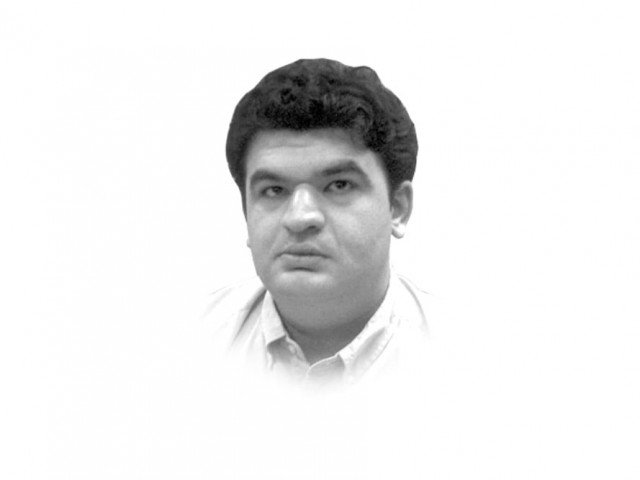Actors in Karachi
PPP’s decision's to revive commissionerate system and bring the FC adds combustible element to the Karachi bonfire.

First, let us acknowledge that no grand plan can entirely work so long as the two political parties who are inspiring, if not outright ordering, the violence in Karachi continue to consider guns the best tool for addressing their demographic concerns. One of these parties, generally referred to euphemistically in print by terrified journalists and editors as ‘a Karachi-based ethnic party; or ‘the city’s custodians’, is worried about losing its iron grip on the city as the mass migration of Pakhtuns threatens to upset their electoral supremacy. In the interest of fairness, let’s adopt a euphemism for the opposing political party too. The Northern Nomads want their share of power in the city, do not like being collectively tarred as Taliban and would like nothing more than to drive their buses and trucks without becoming the victims of arson.
Stepping into the breach, to the extent that fumbling around can be counted as stepping into anything, is the party that rules the centre. Let’s call them the Dynastic Daddies. They have come up with two plans, both of which are so unlikely to succeed that those of a conspiratorial bend would think they were actively trying to worsen the situation in Karachi.
On August 2, Interior Minister Rehman Malik announced that the 1,000 Frontier Constabulary (FC) personnel brought to Karachi would be given full police powers, which presumably includes shoot-on-sight orders. Quite apart from the wisdom of deploying FC jawaans, who are primarily recruited from Khyber-Pakthunkhwa and Fata, to tackle what is essentially an ethnic conflict between those drawn from the city’s Muhajir and Pashtun communities. Past experience has shown that military and paramilitary forces ignite conflict rather than subduing it.
The military had free reign during Operation Clean-Up in 1992 to deal with the MQM ‘threat’, a threat that at the time was exaggerated. They responded by going on a killing orgy that would have made Charles Manson blush. Nearly 20 years later, the psychic wounds caused by that operation have yet to heal. Giving the same power to a different paramilitary force will be as effective as giving a painkiller to a cancer patient.
The other cunning PPP plan was to reintroduce the commissionerate system, another move that seemed calibrated to annoy the MQM as much as possible. The local government scheme has been far from perfect, even in Karachi, but is vastly preferable to transferring power back to unseen, unaccountable bureaucrats. Quite apart from the merits of the commissionerate system, the PPP’s decision managed to add yet another combustible element to the Karachi bonfire.
Adopting a stick-and-an-even-bigger-stick approach to Karachi, as the PPP as has done, will only lead to more violence, disenchantment and alienation. The sticking point is that a workable solution is all but impossible when the primary actors in the drama have memorised the same violent dialogue and refuse to adapt. Anyone who thinks deweaponisation will force political parties to trade in their guns for butter is taking optimism too far. Figuratively, arming the police with all the tools it needs to combat violence is often suggested but carte blanche authority is likely to lead to more ‘encounters’.
If Karachi truly is the City that Never Sleeps it is only because the sound of gunfire and the illumination provided by burning buses does not allow its residents to doze off for even a second.
Published in The Express Tribune, August 4th, 2011.
















COMMENTS
Comments are moderated and generally will be posted if they are on-topic and not abusive.
For more information, please see our Comments FAQ